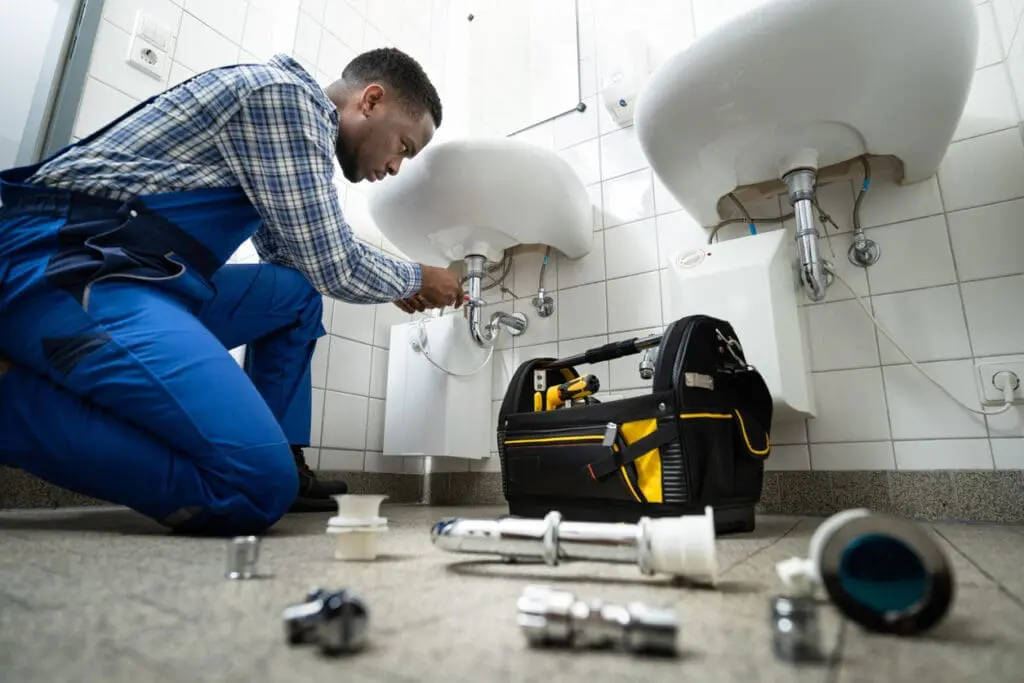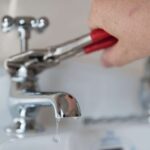Plumbing emergencies can happen when you least expect them—often at the most inconvenient times. Whether it’s a burst pipe, a clogged drain, or an overflowing toilet, these problems require immediate attention to avoid costly damage to your home. Having access to a reliable 24/7 emergency plumber can save you both time and stress. But what should you do when faced with a plumbing crisis? Here’s a guide to help you navigate through the situation.
1. Stay Calm and Assess the Situation
The first and most important step in any emergency is to stay calm. Panicking can cloud your judgment, making it harder to take the right steps. Quickly assess the problem to determine the level of urgency. While some issues, like a minor leak, can be managed temporarily, others—such as a burst pipe or a sewage backup—require immediate action.
Ask yourself the following questions:
- Is the water flowing uncontrollably?
- Is there a risk of water damage to your property?
- Are multiple plumbing fixtures affected?
These answers will help you prioritize your next steps.
2. Turn Off the Water Supply
If the issue involves water leakage, the first thing you should do is shut off the water supply to the affected area. Most homes have individual shut-off valves for sinks, toilets, and appliances, which can minimize the damage. If the leak is more severe, locate your main water shut-off valve, which is usually found near the water meter or where the main water line enters the house.
Shutting off the water will prevent further flooding, giving you time to contact a plumber without worrying about extensive water damage.
3. Call a 24/7 Emergency Plumber
Once you’ve assessed the situation and taken immediate action to prevent further damage, it’s time to call a 24/7 emergency plumber. Not all plumbers offer around-the-clock services, so make sure to find one that does. Search online for “emergency plumbers near me” or keep the contact information of a trusted plumber handy.
When speaking to the plumber, provide as much information as possible about the issue. This will help them bring the right tools and equipment to resolve the problem quickly. It’s also a good idea to ask for an estimated time of arrival and clarify any emergency fees upfront.
4. Minimize the Damage While You Wait
While waiting for the plumber to arrive, there are a few steps you can take to minimize the damage to your property. Here are some quick tips:
- For burst pipes: Place buckets or towels around the affected area to catch dripping water. If the pipe is exposed, wrap it in duct tape or a cloth as a temporary fix.
- For clogged drains: Avoid using chemical drain cleaners, as they can corrode your pipes and worsen the issue. Instead, try using a plunger or a drain snake if you have one.
- For overflowing toilets: Turn off the water supply valve located behind the toilet. This will stop the flow of water and prevent further overflow.
By taking these actions, you can limit the damage and make the plumber’s job easier when they arrive.
5. Know the Most Common Plumbing Emergencies
Understanding common plumbing emergencies can help you be better prepared. Here are a few problems that often require emergency plumbing services:
- Burst Pipes: A sudden drop in temperature can cause pipes to freeze and burst, leading to severe flooding. Aging pipes can also crack or burst over time.
- Sewer Backups: When sewage lines become blocked, waste can flow back into your home through drains, creating an unsanitary and hazardous situation.
- Clogged Drains: Severe clogs in sinks, showers, or toilets can cause water to back up, potentially damaging fixtures and causing leaks.
- Water Heater Issues: A malfunctioning water heater can result in no hot water, strange noises, or even leaks from the tank.
- Leaking Faucets and Pipes: While a slow drip may seem minor, leaking pipes can waste water and damage your home over time.
6. Consider Temporary Repairs
In some cases, you may be able to make temporary repairs to stop the problem from worsening. For example:
- Leaky pipes: Use a plumber’s tape or a patch kit to seal the leak temporarily.
- Clogged drains: Use a plunger or drain snake to clear the blockage.
- Dripping faucets: Tighten loose parts or shut off the water supply to the faucet.
Temporary repairs can give you a little extra time to find a professional plumber or wait for your emergency plumber to arrive.
7. Know When to Call in Professional Help
Not all plumbing issues are emergencies. For minor problems, you may be able to schedule a regular service call. However, it’s crucial to know when to seek professional help immediately. Situations that require emergency plumbing services include:
- Flooding or extensive water damage
- Sewage backup or foul odors
- No running water
- Significant pipe leaks
- Overflowing toilets
If left unchecked, these issues can lead to severe damage, costly repairs, and health hazards. Calling an emergency plumber ensures that the problem is handled quickly and efficiently.
8. Prevent Future Plumbing Emergencies
Once your plumbing emergency has been resolved, it’s essential to take preventive measures to avoid future issues. Regular maintenance of your plumbing system can save you from unexpected emergencies. Here’s what you can do:
- Schedule regular inspections with a professional plumber to check for potential problems.
- Insulate your pipes during colder months to prevent freezing.
- Avoid flushing items like paper towels, wipes, or feminine hygiene products down the toilet.
- Clean out drains and gutters regularly to prevent clogs.
- Be mindful of what goes down your kitchen sink to avoid grease and food particle buildup.
By maintaining your plumbing system, you can significantly reduce the likelihood of needing an emergency plumber in the future.
Conclusion
Dealing with a plumbing emergency can be stressful, but knowing what to do at the moment can help mitigate damage and get the issue resolved quickly. Stay calm, shut off the water, and call a 24/7 emergency plumber as soon as possible. While you wait, take steps to minimize the damage and attempt temporary repairs if necessary. By being prepared and keeping up with regular maintenance, you can protect your home from plumbing disasters.



